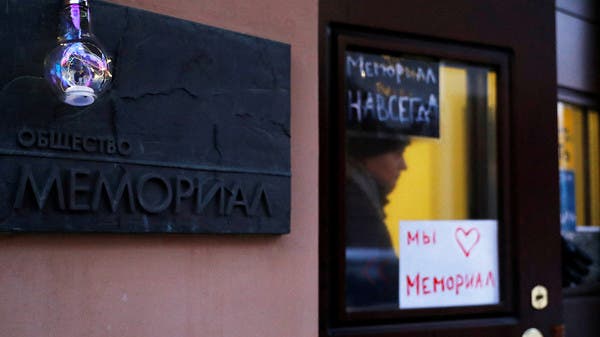A Moscow court on Friday ruled that Memorial’s Moscow headquarters should be seized, just hours after the NGO, together with a Belarusian activist and a Ukrainian NGO, shared the Nobel Peace Prize.
The Tverskoy court informed Russia’s Interfax news agency that Memorial’s main headquarters in Russia had been “converted into public property” as a result of a fresh trial against the group.
The majority of the organization’s administrative functions were located in its offices in the heart of Moscow, where it also frequently held free public exhibitions.
According to the RIA Novosti news agency, a spokesman of the Tverskoy court claimed that Memorial was “involved in the rehabilitation of Nazi murderers, denigrated the authorities, and created a misleading image of the Soviet Union.”
Since December 2021, the group has been outlawed in Russia, where it serves as a reminder of political tyranny during the Soviet era and a symbol of the defence of freedoms.
The Ukrainian Center for Civil Liberties and Belarusian activist Alice Belyatsky received the Nobel Peace Prize on Friday.
Memorial has been chronicling the Stalinist purges and repressions in modern Russia for three decades.
In a ruling that the NGO viewed as political, the Russian judiciary announced the dissolution of Memorial last winter for breaking a law on “agents abroad.”
In the 1990s, this group served as a bulwark of civil society in Russia and a poster child for democratisation.
The organisation established in 1989 by Soviet dissidents, including Nobel Peace Prize laureate Andrei Sakharov, has been credible due to its thorough investigations of everything from Stalinist crimes to abuses in Chechnya.
Because to its work in Chechnya, the Russian republic in the Caucasus that experienced two wars, the organisation was well-known in the West, where it attained enormous prominence. The European Parliament presented the Sakharov Prize in 2009.
Natalia Estemirova, the leader of the NGO in Chechnya, was taken hostage in Grozny in 2009 and then shot in the head.
This was Moscow’s response to the awarding of the “Peace Nobel” to a Russian human rights organisation.

